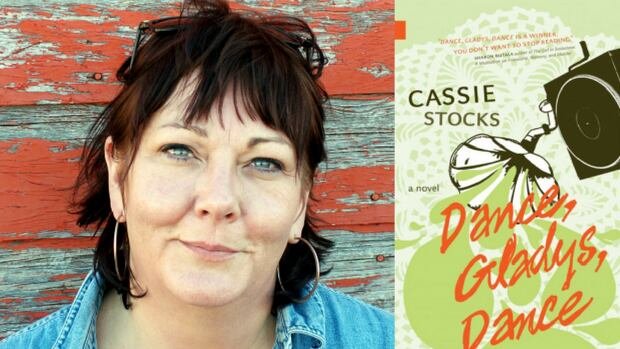Cassie Stocks’ debut novel Dance, Gladys, Dance has been selected for the Canada Reads 2018 longlist. The book, which won the 2013 Stephen Leacock Medal for Humour, follows 27-year-old Frieda Zweig as she befriends a truly unlikely group of people, learns that normalcy isn’t all it’s cracked up to be and explores the unique challenges that face female artists.
Stocks spoke with CBC Radio’s Afternoon Edition in Regina, Sask., about how she wrote Dance, Gladys, Dance.
Gladys doesn’t dance anymore
“Dance, Gladys, Dance is about Frieda Zweig, a painter who’s given up on her art. She meets Gladys, who’s a ghost from the early 1900s. The book tells the story of Gladys, Frieda and several other female artists. They all become connected together and all their stories meld together.
“Fifteen years ago I saw an ad in the newspaper in the buy-and-sell section. The original ad was, ‘Hifi for sale; 8-track, stereo,’ and the last line was: ‘Gladys doesn’t dance anymore, she needs room to bake.’ I thought that was so sad. Why isn’t Gladys dancing? Why is she baking instead? So the original idea was to take a look at Gladys and see why she’d given up dancing.”
Make art or do laundry?
“Women are quite often brought up looking after the children and nowadays they’re also working at the same time. To try to set aside that time to say, ‘I’m going to work on my art,’ seems like a selfish thing to do, not quite as valuable as doing another load of laundry. Women also tend to doubt themselves more about the value of what they’re doing.
“While I was writing the book, I was a single mom. I was either working or going to school full-time. It was a struggle a lot of times to keep going at it, to keep doing it. So I took the core of that, the things that other women had told me and a research paper I’d done and just put it all into the story.”
The power of community
“The book is about five female artists whose stories all intertwine with each other. It’s about the interactions between them and what they learn from each other.
“I would hope that as women are standing up for themselves in Hollywood and everywhere else, just saying: ‘No, these things are not okay. We do have things we want to say,’ helps break down limitations and stereotypes.
“I hope readers will get a little bit of hope and a sense that there is a community out there that if they reach out they can find other people to inspire them.”
Cassie Stocks’ comments have been edited and condensed.

